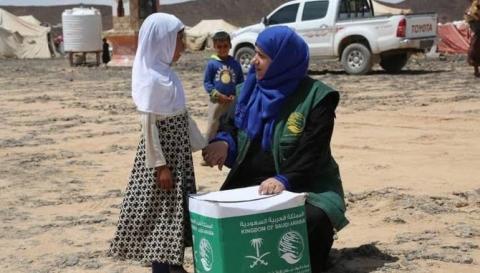Yemen Risk Overview: Outlook for December 2020 - May 2021
Risk 1
Depletion of foreign currency reserves drives inflation up; eroded purchasing power and high food prices result in increased levels of food insecurity.
The announcement of a new cabinet on 18 December 2020 as part of the Riyadh Agreement, and the approval in December of withdrawals from a Saudi deposit to cover letters of credit for the import of basic commodities, contributed to a sudden appreciation of the Yemeni riyal in areas controlled by the Government of Yemen (GoY). The riyal reached its highest value by the end of the year at 640 YER to 1 USD. As of January, the riyal in GoY-controlled areas re- sumed a steady depreciation. Contrarily, the value of the riyal in Ansar Allah-controlled areas remained stable at around 595 YER per USD during the same period. The UN panel of experts report highlighting a lack of transparency, allegations of corruption, and misuse of the Saudi deposit by the Central Bank of Yemen (CBY) in Aden (UNSC 25/01/2021) will likely affect further bilateral support by the Kingdom of Saudi Arabia (KSA) to the GoY, at least in the short term. This, however, could also push the GoY towards significant reforms within CBY Aden, aimed at improving transparency, possibly encouraging foreign financial support and contributing to currency stability. In the short to medium term, it is also likely that import food suppliers and corresponding banks will exert more caution when dealing with Yemen, because of concerns around financial reliability, possibly leading to reduced inflows of foreign currency. Dwindling foreign currency reserves will continue to drive inflation up, affecting people’s purchasing power and their ability to afford food and other basic commodities. This could be further com- pounded by reduced incomes for people employed in the agricultural sector because of the impact on crops of this year’s severe winter season in Yemen.
Risk 2
Reduced capacity to deliver assistance – because of further cuts in humanitarian funding – impacts millions of people in need.
The Humanitarian Response Plan (HRP) for Yemen for 2021 has not been published yet, and the HRP 2020 only received an additional USD 200 million in January, leaving a gap of 44% in the total requirements (FTS accessed 09/02/2021). The Foreign Terrorist Organization (FTO) designation of Ansar Allah on 19 January raised concerns about possible reduced humani- tarian access in northern Yemen. The General Licences issued by the U.S. Department of the Treasury and early indication of the reversal of the designation by the new US administration have, however, likely helped to mitigate the impact of this decision. The reversal was again announced by the U.S. Department of State on 5 February and might be made official before mid-February (VOX 05/02/2021). Humanitarian access in Yemen continues to be severely res- tricted however, especially in northern areas, where bureaucratic impediments and interference with operations by Ansar Allah often cause delays and difficulties in targeting people in need.
Risk 3 An attempt by Ansar Allah to enter Marib city intensifies the conflict, leading to mass displacement, civilian casualties, disruption to livelihoods, and lack of humanitarian access.
Weekly clashes in Marib governorate have continued since the beginning of the year, espe- cially in the surrounding mountain range and around strategic supply routes, with airstrikes throughout January having the biggest impact on civilians. Frontline locations did not see any shift however, and hostilities were less intense, in line with the overall decreased level of conflict in Yemen over the past months – with the exception of Saada governorate. Despite this, on 8 February Ansar Allah launched an offensive against Marib city from three fronts, which was repelled by army troops and tribesmen (Arab News 09/02/2021). Further attempts to enter Marib city will lead to casualties and displacement, increasing humanitarian needs while disrupting access to and around the area.
Risk 4
Sudden decline in public service provision in GoY-held areas leaves millions of people requiring external assistance for their basic needs, while humanitarian access is also reduced.
While the Riyadh Agreement between the GoY and the Southern Transitional Council (STC) has seen some progress – particularly in relation to the formation of a new government – many milestones are still up for discussion. Disagreements might derail the process, re- sulting in power struggles to control supply routes which would cause stalemates and dis- ruptions to services. Protests continued to take place in January in Aden over the lack of basic public service provision, including electricity and water. Despite COVID-19 cases in Yemen continuing to be largely underreported, it is possible that if new variants of the virus spread in the country, the response to the outbreak might become a bone of contention between the GoY and the STC. For instance, the GoY needs to be able to provide security and access for the vaccination campaign; failing to do so could significantly erode GoY legiti- macy, which the STC could exploit. If the Riyadh Agreement fails, this could lead to renewed conflict and disruption to services in the south.




